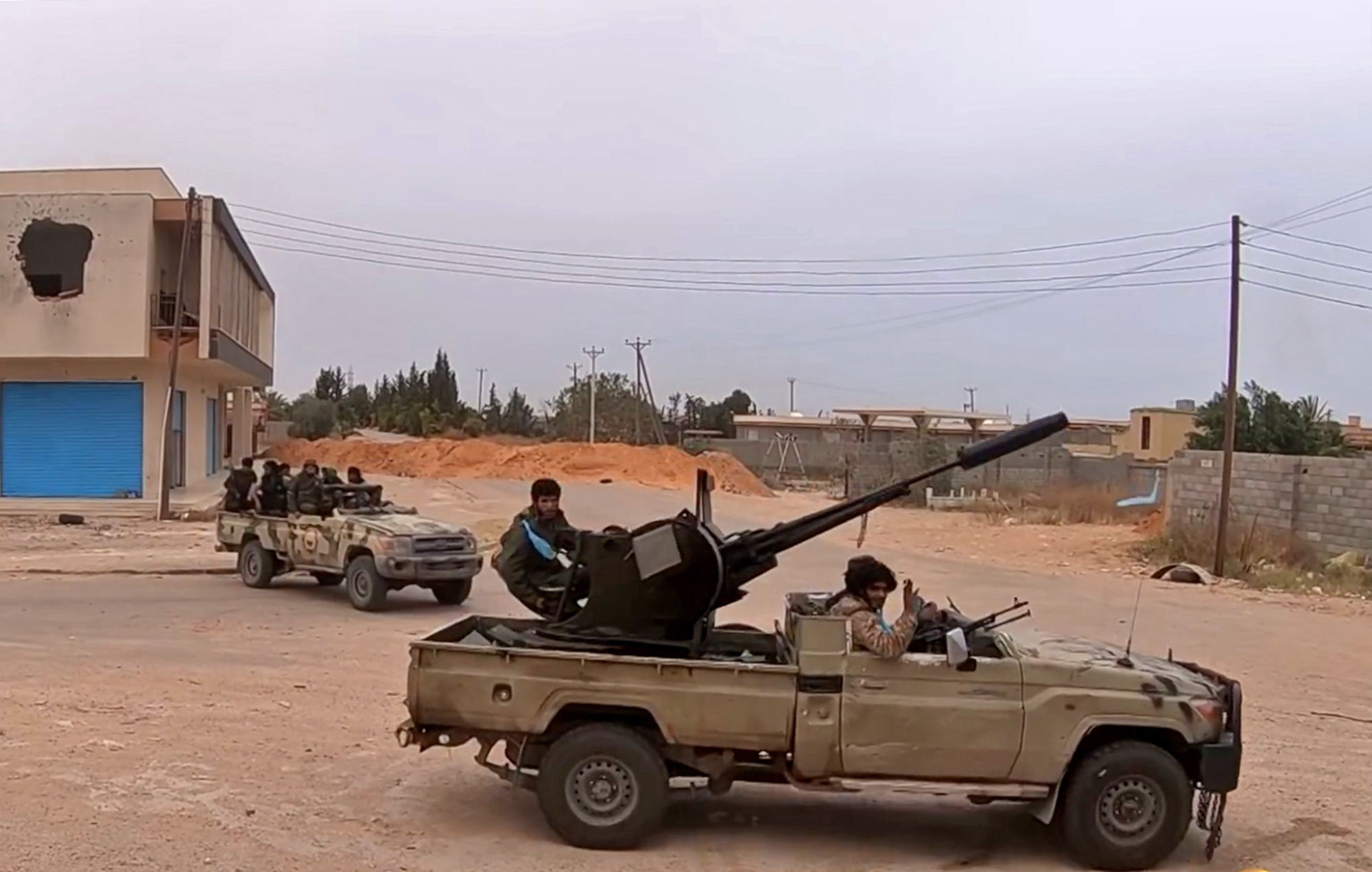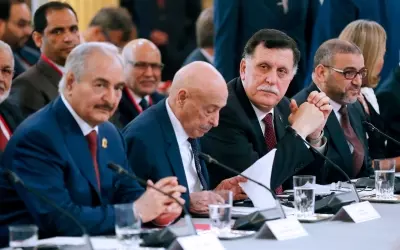Human Rights Watch calls on Libya's Khalifa Haftar to probe abuses by his forces

Human Rights Watch has called on Libyan military commander Khalifa Haftar to investigate allegations of abuse by his forces in Libya.
The organisation said there was evidence that Haftar's Libyan National Army (LNA) had been involved in torture, summary execution and the desecration of the corpses of enemy fighters.
HRW specifically cited two incidents captured on social media - one in which LNA fighters could be seen beating a man whom they later claimed to have killed and the other in which LNA fighters were shown desecrating the body of a detained fighter linked with the internationally backed Government of National Accord (GNA) in Tripoli.
“Khalifa Haftar needs to urgently hold his forces accountable for any war crimes they are committing and apparently advertising online,” said Hanan Salah, senior Libya researcher at Human Rights Watch.
“Senior LAAF leadership has ignored these crimes, but they should be held accountable by domestic and international courts for complicity in abuse," she added, using an alternative name for the LNA.
New MEE newsletter: Jerusalem Dispatch
Sign up to get the latest insights and analysis on Israel-Palestine, alongside Turkey Unpacked and other MEE newsletters
GNA forces say they have discovered eight suspected mass graves, most of them in and around the town of Tarhuna, southeast of Tripoli, which served as the main staging point for Haftar's abortive 14-month offensive against the capital.
The United Nations Support Mission in Libya expressed "horror" at the discovery and welcomed a decision by the Government of National Accord to establish a committee to investigate the finds.
An AFP journalist on Thursday was granted access to a site where several bodies had been discovered and exhumed by the Libyan Red Crescent for identification the day before.
Scraps of clothing were scattered around the site near graves covered with fresh soil.
Separately, 160 bodies were discovered in the mortuary of Tarhuna's public hospital, according to its director Aburawi al-Buzeidi.
It is not the first time that Haftar's loyalists have faced allegations of war crimes.
In 2017 and 2018, the International Criminal Court issued warrants for the arrest of a LAAF commander, Mahmoud al-Werfalli, for his role in a series of extra-judicial executions and desecration of fighters' corpses in Libya's second city Benghazi. He remains at large.
Libya has endured years of violence since a Nato-backed uprising toppled and killed longtime dictator Muammar Gaddafi in 2011, with rival administrations and scores of militias battling for power.
The GNA controls the west, including the capital Tripoli, while Haftar's LAAF holds the east and some of the far-flung oases and oilfields that dot the south.
The United Nations has urged outside powers to respect a deal reached at a January conference in Berlin upholding a much-violated arms embargo, but so far it has had little visible effect.
While the GNA is backed by Turkey and its ally Qatar, Haftar is supported by Russia and the United Arab Emirates as well as Egypt.
Middle East Eye delivers independent and unrivalled coverage and analysis of the Middle East, North Africa and beyond. To learn more about republishing this content and the associated fees, please fill out this form. More about MEE can be found here.


